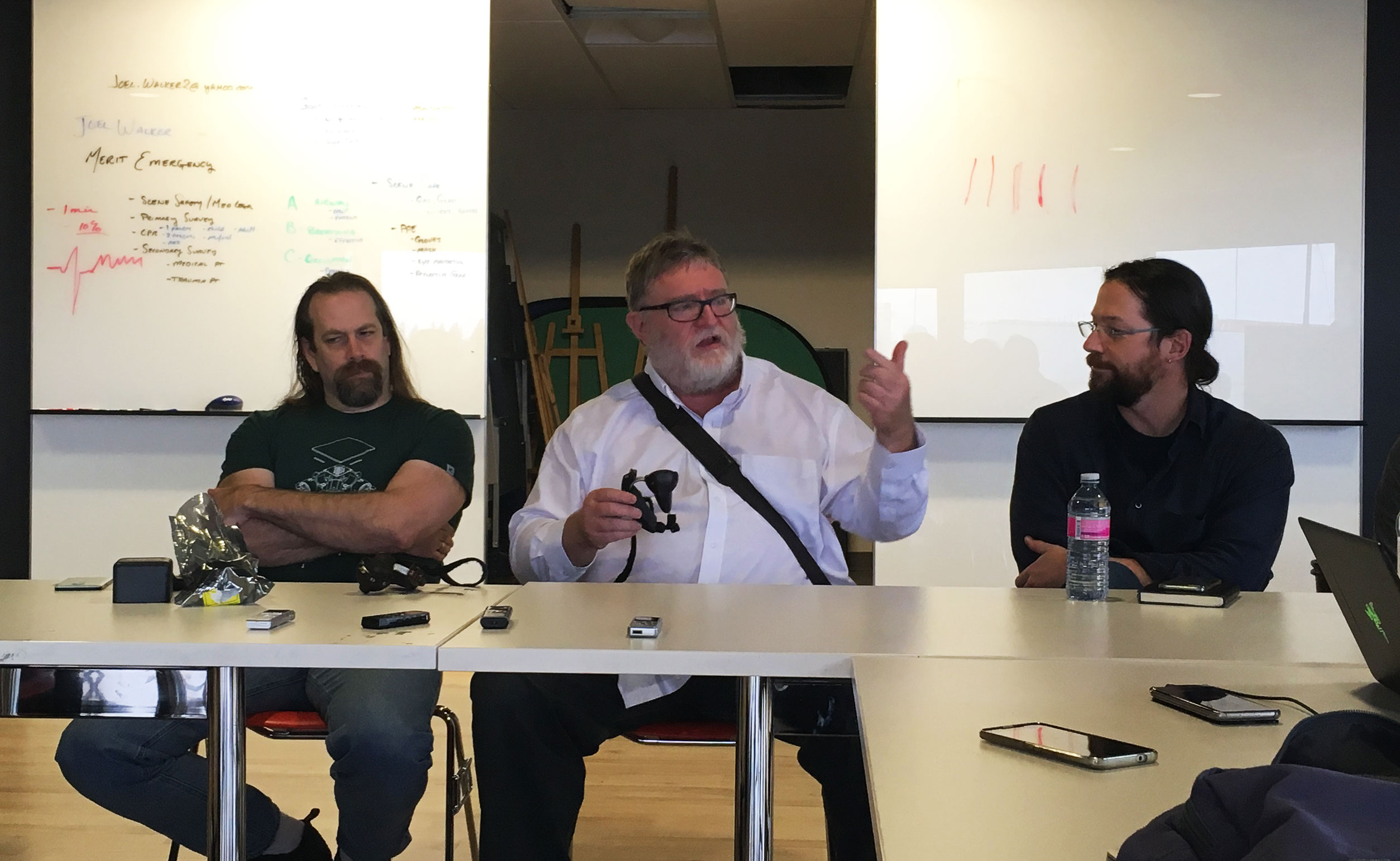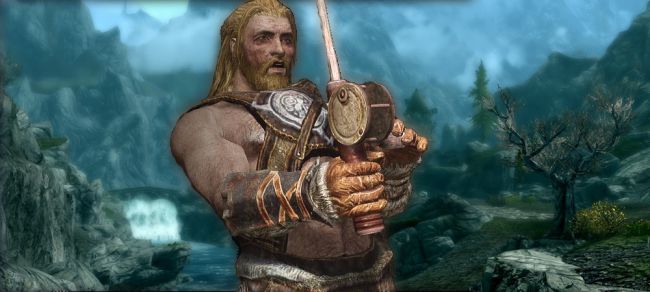Valve: Modders 'absolutely' need to be paid
Gabe Newell makes clear Valve's intention to bring back paid mods.

Valve's plan to allow modders to be paid for their work did not survive contact with the PC gaming community. When the proposal was announced in April 2015 with The Elder Scrolls V: Skyrim as a pilot game, it was met with a mixture of opposition and praise that Valve called "a dump truck of feedback." The plan was retracted in just four days.
To some, the notion of paying modders was contrary to the spirit of modding. Many suggested a donation scheme for Steam Workshop modders as an alternative to traditional pricing. Others, including prominent modders themselves, made the case that revenue sharing was long overdue for a group of creators that had produced beloved work over so many years.
The gaming community needs to reward the people who are creating value.
—Gabe Newell
"We underestimated the differences between our previously successful revenue sharing models, and the addition of paid mods to Skyrim's workshop," Valve's Alden Kroll wrote at the time. "We understand our own game's communities pretty well, but stepping into an established, years old modding community in Skyrim was probably not the right place to start iterating. We think this made us miss the mark pretty badly, even though we believe there's a useful feature somewhere here."
Almost two years later, Valve is speaking again about paying modders for their work. In a roundtable interview at Valve attended by PC Gamer and other press on Thursday, Valve's Gabe Newell expressed the company's intention to take a second crack at paid modding on Steam at some point in the future.
Responding a question about the topic from GamesBeat editor Jeff Grubb, Newell talked broadly about the importance of Steam producing useful information for creators about their work.
"In a sense you want to have really good signal to noise ratios in how the gaming community signals to developers 'Yeah, do more of that.' Or, 'No, please, don't release any more of those ever.' And [modders] create a lot of value, and we think that … absolutely they need to be compensated, they're creating value and the degree to which they're not being accurately compensated is a bug in the system, right? It's just inserting noise into it," said Newell. "You want to have efficient ways so that the people who are actually creating value are the people that money is flowing to."
This language is stronger than the mostly apologetic blog post Valve left us with in 2015 ("We think this made us miss the mark pretty badly, even though we believe there's a useful feature somewhere here"), and it makes clear Valve's commitment to bringing back paid mods.

Newell continued to acknowledge that Valve's first attempt at monetizing modding was painful for the company. "The Skyrim situation was a mess. It was not the right place to launch that specific thing and we did some sort of ham-handed, stupid things in terms of how we rolled it out," he said. "EJ [Valve's Erik Johnson] basically said we just need to back off of this for now, but the fundamental concept of 'the gaming community needs to reward the people who are creating value' is pretty important, right? … the degree to which Valve helps contribute to efficiency in the system is one of the ways in which we're adding value to the system as a whole. So, you know, we have to just figure out how to do it in a way that makes customers happy and that they buy into it, it makes creators happy because they feel like the system is rational and is rewarding the right people for the work that they do. Does that make sense?"
Keep up to date with the most important stories and the best deals, as picked by the PC Gamer team.
It makes sense to us. Valve continues to pay modders, map makers, and modelers whose work is selected for publication in Team Fortress 2, CS:GO, and Dota 2.
Newell didn't elaborate on what Valve would do differently in the future, but it'd be surprising if this eventual second attempt was tied to a big game with a heavily established modding scene such as Skyrim. "[Skyrim] gave us a ton of information. But there was also a little bit of 'That burner is hot. Maybe we wait awhile before we put our fingers on that burner again.'"

Evan's a hardcore FPS enthusiast who joined PC Gamer in 2008. After an era spent publishing reviews, news, and cover features, he now oversees editorial operations for PC Gamer worldwide, including setting policy, training, and editing stories written by the wider team. His most-played FPSes are CS:GO, Team Fortress 2, Team Fortress Classic, Rainbow Six Siege, and Arma 2. His first multiplayer FPS was Quake 2, played on serial LAN in his uncle's basement, the ideal conditions for instilling a lifelong fondness for fragging. Evan also leads production of the PC Gaming Show, the annual E3 showcase event dedicated to PC gaming.

